The new rural dream: China’s urbanites seek greener pastures
Push factors from the hustle and bustle of cities and pull factors from the idyllic countryside are driving young urbanites to seek career opportunities in rural villages. Lianhe Zaobao news correspondent Yush Chau speaks with these “new villagers” to find out more about their motivations to pursue life outside big cities.
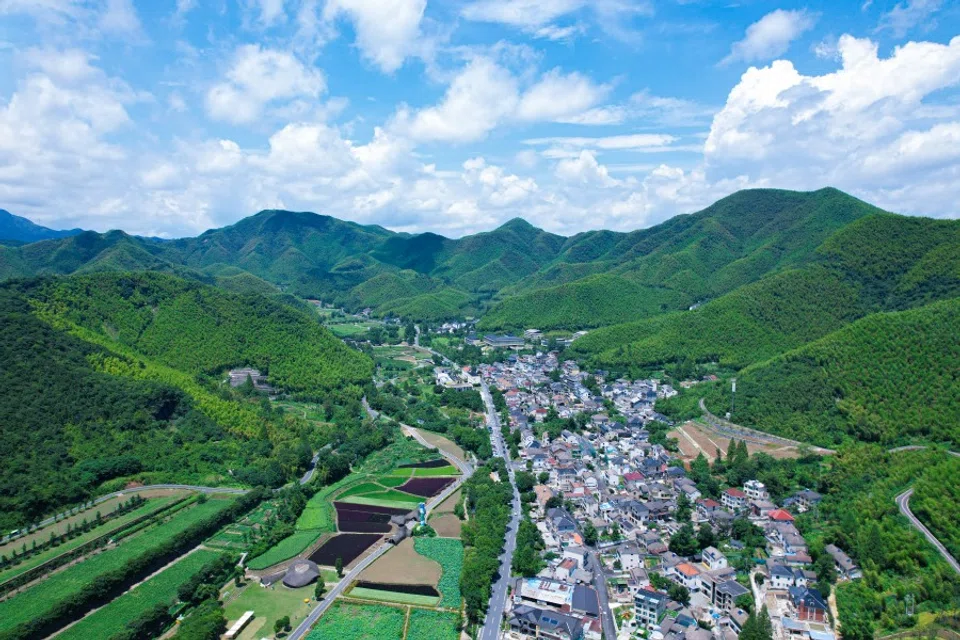
Amid the lush green mountains and clear waters of Yucun village in Anji county, Zhejiang province, a couple in their late 30s runs The Blue House, a cycling-themed cafe and guesthouse.
Three years ago, driven by their passion for cycling, they moved from Shanghai to Yucun, over 200 kilometres away. They had initially renovated an old house into a cycling club, but later tore it down to rebuild from scratch. The couple spent nearly a year constructing the current three-storey building.
Owner Zhuo Li told Lianhe Zaobao that the hilly terrain around Yucun is a paradise for cycling enthusiasts, who stick around not just because of the ideal riding conditions, but also the pleasant natural environment and relaxed pace of rural life.
“Every day, I wake up to green mountains and clear waters, which do wonders for my physical and mental well-being,” said Zhuo Li’s boyfriend, describing their current lifestyle.
“I used to toil daily inside a cubicle,” said Bao. “Now, the entire outdoors is my office. The creative atmosphere is fantastic.”
Fantastic creative atmosphere
Both of them believe that the quality of life in Yucun is no lower than in the city. Zhuo Li said candidly, “You don’t have to worry that your standard of living will drop significantly here.” Daily necessities are readily available, and there is not too big of a gap between urban and rural life as people typically imagine.

A similar story of relocating to the countryside has also unfolded for Bao Jingwen and Zhang Hang, who are in their early 30s.
These two close friends moved from Hangzhou to Yucun three years ago. They rented a 460-square-metre, three-storey house with a courtyard for an annual rent of just 10,000 RMB (US$1,400) — a sum that might only cover a single room in Hangzhou.
Bao does not see moving to the countryside as stepping into backwardness. Take online shopping, for example. Many deliveries still arrive the next day whether you are in Hangzhou or Yucun — both in Zhejiang.
She and Zhang now work as content creators, with a side business in plum wine brewing. “I used to toil daily inside a cubicle,” said Bao. “Now, the entire outdoors is my office. The creative atmosphere is fantastic.”
Inside the house, Bao showed me a small room that was originally intended as a livestream studio, but it now resembles more of a wine cellar. The room is neatly lined with homemade plum wine jars of varying sizes, each labelled with the brewing date and recipe.

Brewing plum wine began as a hobby for Bao, but quickly evolved into something more. Whenever she hosted gatherings at home, she would invite friends to sample her creations. “They kept tasting and eventually asked to buy some,” she recalled.
That was when she spotted a business opportunity. Last year, she partnered with a local distillery in Yucun to standardise the production process and launch commercial sales.
This trend is most noticeable in rural areas surrounding major metropolitan clusters such as the Yangtze River Delta, the Pearl River Delta, the Chengdu-Chongqing region and the Beijing-Tianjin area.
Attracting new villagers with global partner programme
Zhuo Li and Bao Jingwen both participated in Yucun’s global partner programme, launched in 2022. The initiative aims to attract outside talent in sectors such as cultural tourism, creative industries and digital economy. To date, more than 60 projects have been implemented, drawing over 1,200 “new villagers” who now work regularly in Yucun — overtaking the number of original local residents.
Associate Professor Forrest Zhang from Singapore Management University’s Department of Sociology told Lianhe Zaobao that China is currently witnessing a trend of reverse urbanisation, with a growing number of urban residents moving to the countryside. This trend is most noticeable in rural areas surrounding major metropolitan clusters such as the Yangtze River Delta, the Pearl River Delta, the Chengdu-Chongqing region and the Beijing-Tianjin area.
He explained that the phenomenon is driven both by push factors from the cities — such as high housing prices, employment anxiety and lifestyle imbalance — and pull factors from the countryside, including better ecological environments, emerging industrial opportunities and increasingly modern infrastructure.
Rural CEOs offer opportunities
Chen Jingjing, founder of Tusheng Management Consulting Studio, which focuses on China’s rural revitalisation, observed a similar trend: “In recent years, the employment market has been tough — many people struggle just to find a job.”
He believes that Yucun’s global partner programme and similar local initiatives to recruit rural CEOs are creating valuable entrepreneurial and employment opportunities for urban residents willing to relocate to the countryside.
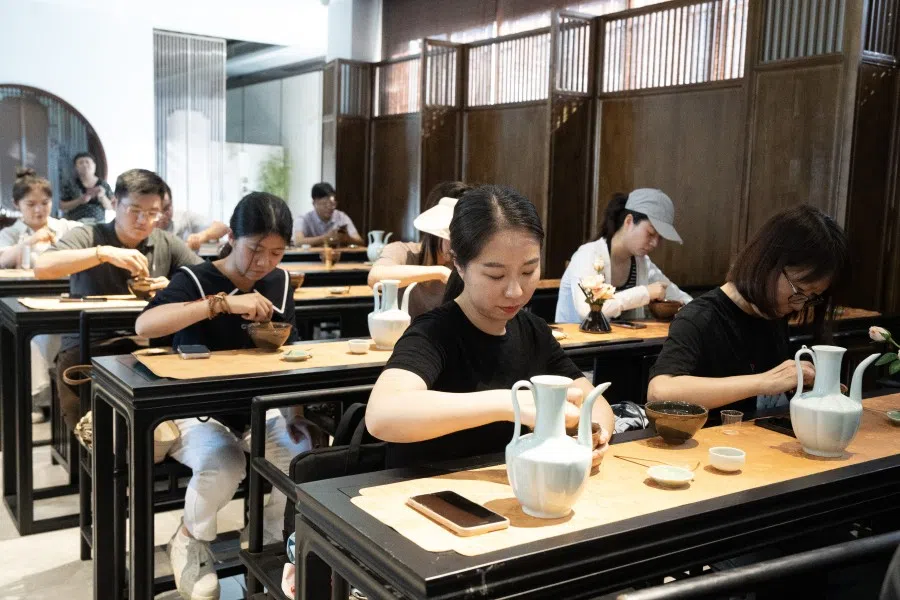
Also known as rural professional managers, these CEOs primarily assist villages in managing industries and operational services. According to Chinese media, some local governments in Guangdong have piloted programmes to hire rural CEOs, offering annual salaries starting at 150,000 RMB, along with a bonus depending on the village’s performance.
However, Chen emphasised that increasingly more young people that move to the countryside are not doing so to engage in farming, but to explore future-oriented lifestyles in rural areas where the cost of living is lower and the ecological environment is more liveable.
He believes that many urban dwellers envy the spacious homes and pleasant surroundings of the countryside, where the quality of life is by no means inferior. As long as a village has adequate transportation, internet connectivity and daily amenities, it has the potential to attract freelancers, creative professionals and workers in the digital economy.
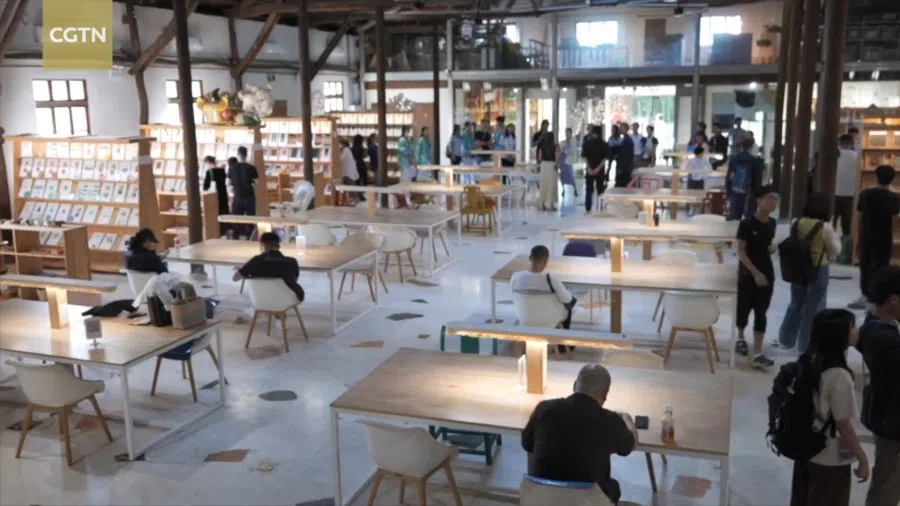
Chen has lived as a “new villager” for five years in Qingshan village, Yuhang district, Zhejiang. There are now over a hundred such new villagers in the area, some of whom have lived there for seven or eight years, or even more than a decade, most of them renting homes from local residents.
Among this wave of urbanites heading to the countryside are also digital nomads who prefer a roaming lifestyle, generally freelancers who do not need to clock in at an office and can work remotely as long as they have an internet connection.
... the aim of these communities goes beyond simply serving digital nomads. The broader vision is to build youth eco-communities that attract more young people to the countryside and revitalise underused rural resources. — Xu Song, an entrepreneur
Supportive digital nomad communities
In recent years, entrepreneur Xu Song and his partner De have been developing digital nomad communities in locations such as Anji in Zhejiang, Huangshan in Anhui and Wuyishan in Fujian. These communities include shared workspaces and dormitories designed to meet the professional and daily living needs of digital nomads.
However, Xu emphasised that the aim of these communities goes beyond simply serving digital nomads. The broader vision is to build youth eco-communities that attract more young people to the countryside and revitalise underused rural resources.
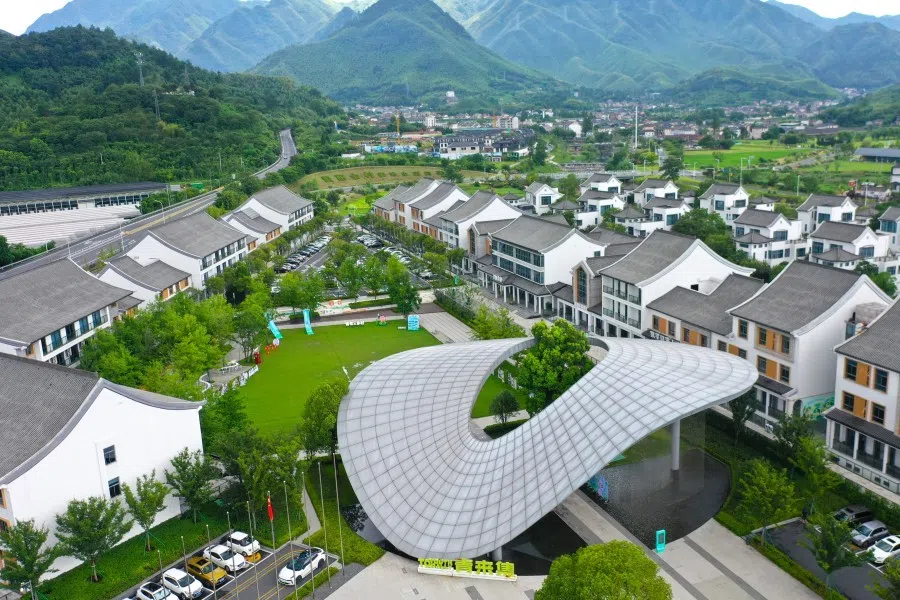
He noted that many young people are already drawn to the idea of rural living. But moving into a villager’s home can be a tough adjustment, and when like-minded peers live together, it is easier to form bonds and integrate into the local community.
Zhuo Li admitted that if it were not for the digital nomad community in Yucun at the time, she might have struggled to launch her project. “I can’t stay in a hotel long term, can I? And I can’t just rent a room in a villager’s home either.”
... rural life can be just as competitive and demanding. If you truly want to stay, you need clear goals and a solid plan — short-lived enthusiasm will not get you far. — Bao Jingwen, a Yucun resident
However, while the countryside offers a pleasant environment, lower living costs and a slower pace of life, it does not mean that these new villagers can simply coast along.
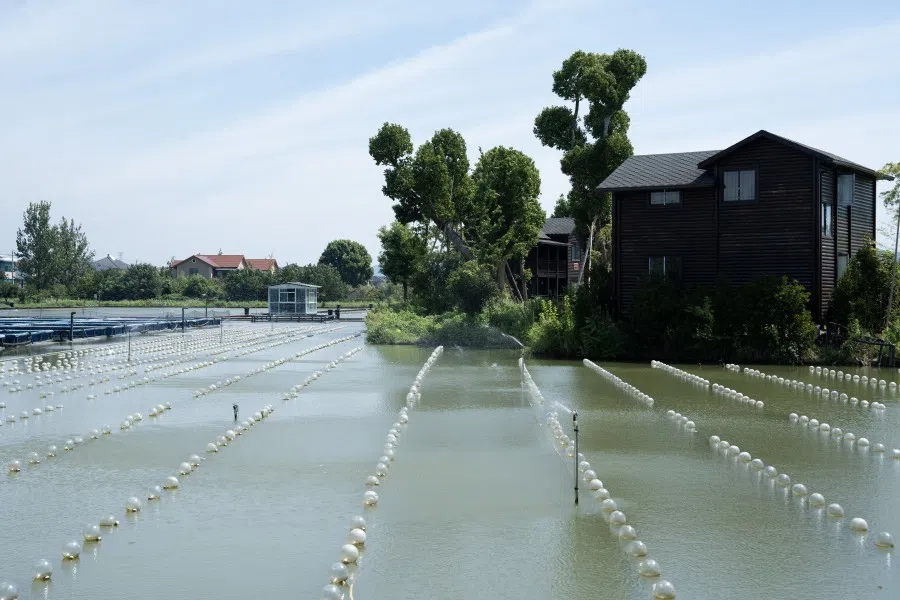
Bao Jingwen, who has lived in Yucun for nearly three years, puts it bluntly: rural life can be just as competitive and demanding. If you truly want to stay, you need clear goals and a solid plan — short-lived enthusiasm will not get you far.
She stressed the importance of building a self-sustaining business model and advised, “If you’re not generating income, you’ll struggle and feel pressure no matter where you are.”
In addition to relying on income from social media and advertising, she is working hard to sell products online, with her signature homemade plum wine, crafted from her own recipe, being one of her main offerings.
This article was first published in Lianhe Zaobao as “从格子间到青山下 中国年轻人下乡找另一种可能”.



![[Big read] When the Arctic opens, what happens to Singapore?](https://cassette.sphdigital.com.sg/image/thinkchina/da65edebca34645c711c55e83e9877109b3c53847ebb1305573974651df1d13a)
![[Video] George Yeo: America’s deep pain — and why China won’t colonise](https://cassette.sphdigital.com.sg/image/thinkchina/15083e45d96c12390bdea6af2daf19fd9fcd875aa44a0f92796f34e3dad561cc)
